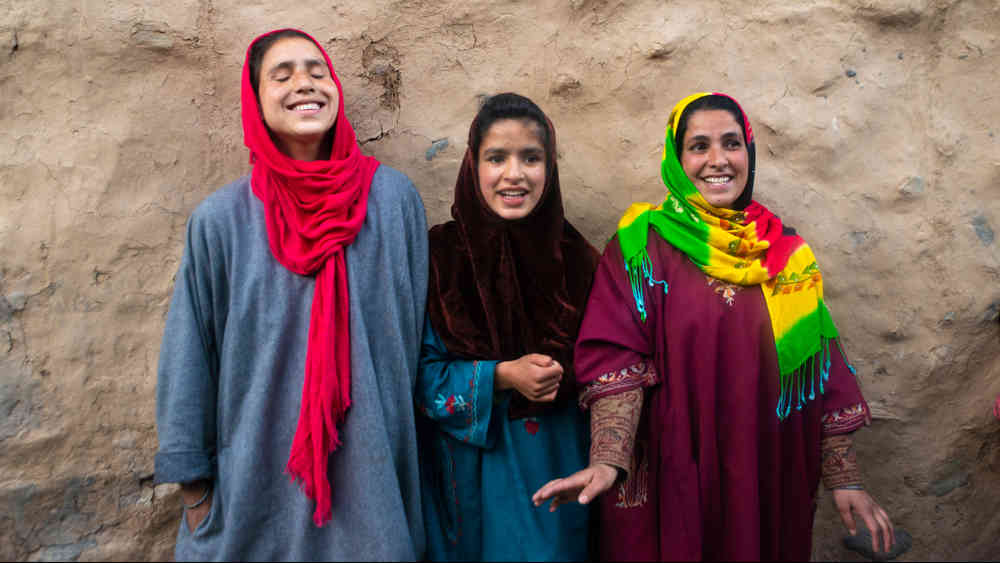Globalization has led to multiple employment opportunities with the potential to alleviate poverty. Yet, women are over-represented among the poor, and the trend is deepening globally. The value ascribed to women’s work is not commensurate with that of work performed by men. Women are more likely to engage with unpaid labour and reproductive work, draw lower-wage salaries, work for longer hours, and face riskier work conditions than men. Furthermore, due to traditional customs and formal laws of inheritance, women are likely to own lesser land. While women comprise a category exposed to discrimination and oppressive structures, those from geopolitically disturbed terrain — Kashmir’s women are a case in point — stand doubly disadvantaged. This is not only because of the feminization of poverty but also because they are at the receiving end of various subjugate acts enshrined in social practices as well as of the threat of militancy that the region is vulnerable to.
Since the Partition, Kashmir has exhibited volatility and vulnerability. The conflict plays out at various levels: India versus Pakistan, Hindus versus Muslims, and Kashmiri Muslims versus Kashmiri Pandits. The Valley has been an epicentre of militancy, greatly impacting livelihoods and the economy.
The consequences are telling.
The sex ratio had declined in Kashmir from 900 in 2001 to 889 in 2011. The literacy rate for females stood at 56.43 per cent while their work participation rate was 19.1 per cent. Women from the Valley are at risk of being trafficked because of poverty and suffer psychological trauma arising out of the conflict. Opportunities for education and employment are unequal; there is legitimacy for polygamous relationship for men; instances of divorcing a wife for her inability to bear an heir are not unheard of. Atrocities are perpetrated by insurgents and fundamentalists alike. Women venturing into domains associated with men are perceived as a threat.
For women to be truly empowered, consciousness, ideology and structural conditions need to be challenged. Technology platforms could be a tool to facilitate women’s empowerment. These platforms have enabled women to conduct businesses with ease and reach out to a global audience with minimal capital investment. For instance, Instagram has been instrumental in bringing together skill-sets on the supply side and buyers on the other end for growth in the small and medium enterprises sector, enabling women entrepreneurs to reach consumers directly without the involvement of third parties. Instagram is now prominent as a business platform and Instagram entrepreneurs are known as Instapreneurs. It has also helped women connect with and support each other, thereby forming a community to voice their opinions against existing structural constraints.
There are several women entrepreneurs operating out of the Valley. Clothing seems to be the most popular choice for entrepreneurship, followed by arts and crafts and health and beauty products. Significantly, Instapreneurship among women spring from a will to preserve Kashmiri culture, to pursue individual passions, or overcome the gloomy employment situation in the state. The scope of Instapreneurship can be expanded further so that women can exercise choice in decision-making in business and personal matters. The key to sustainable development in a restive geography like Kashmir lies in discovering the potential of new technology platforms like Instagram.
However, women’s empowerment through technology need not follow a linear script. Gender stereotypes are often reinforced, rather than challenged, as women go about bearing the dual responsibilities of business and household. To fully tap into the potential of women Instapreneurs and move beyond the miscarriage of justice, empowerment should not be contingent upon class, income, or education.
Although globalization and social media platforms like Instagram have substantially opened up avenues, insurgency and the enduring patriarchal mindset still impede women’s empowerment, reiterating the fact that development cannot be a substitute for justice.
Debarati Bhattacharya is a student in the Faculty of Planning, CEPT University, Ahmedabad










